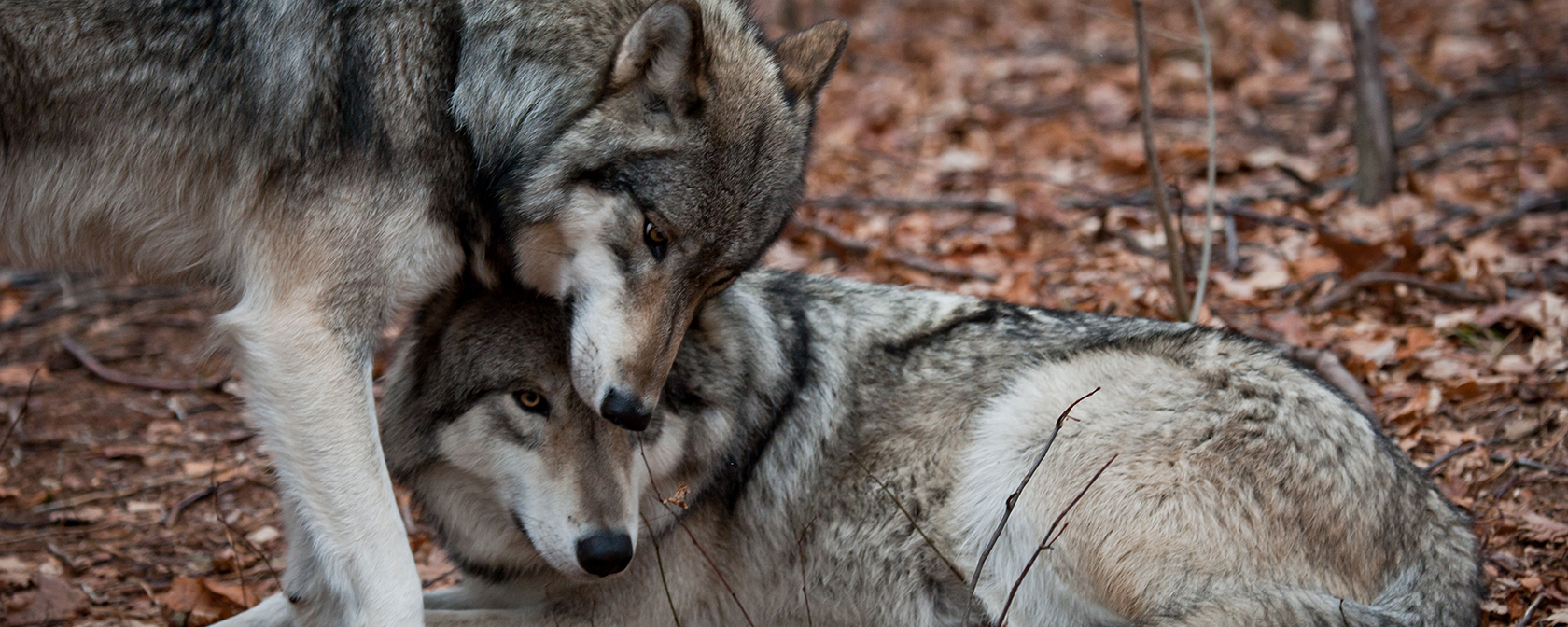By Sara Amundson and Kitty Block
The first wolf pups in several years have been born on Isle Royale in Michigan, the National Park Service reported this week.
This is exciting news. We have followed the progress of the wolves on this remote island close to Canada for years and championed their survival. Albeit small, Isle Royale illustrates, in a microcosm, the important role wolves play in their ecosystems, and the harm that can ensue when they are removed from the habitats they have historically occupied. It’s an especially important lesson at a time when wolves elsewhere in our country are about to lose their federal protections, making them easy targets for trophy hunters and trappers.
In 2018, there were just two wolves remaining on Isle Royale, down from a historical average of 20 to 30 animals. Climate change has resulted in the loss of ice bridges from Canada, making it harder for wolves to migrate to the island. This, in turn, led to problems like inbreeding and lack of genetic diversity. The two wolves who remained on the island were older and too closely related to reproduce successfully. Moose numbers swelled, causing devastating harm to the island’s forests and dooming the moose population to slow, cruel starvation.
In 2018, with urging from the Humane Society of the United States and other wildlife protection organizations and scientists, the NPS decided to augment the population with 20 to 30 new wolves over the course of three to five years.
Now, two years into those efforts, not only is there evidence that pups have been born on the island, but small groups of wolves have begun travelling together and establishing territories on Isle Royale, restoring the island’s ecological balance. These interactions, according to John Vucetich of Michigan Technological University, who has led research on the wolves of Isle Royale for nearly two decades, are “exciting to see.”
But even as the wolves of Isle Royale show promising signs of recovery, others in Michigan and around the United States are about to find themselves in the sights of trophy hunters.
The U.S. Fish and Wildlife Service is closing in on lifting federal Endangered Species Act protections for gray wolves across the lower 48 states by the end of this year. USFWS director Aurelia Skipworth recently told the Associated Press that the removal of these protections was “very imminent.”
The agency is moving forward with this poorly thought out plan despite the opposition of scientists and the 1.8 million Americans who commented on the rule. Unfortunately, the USFWS decided it was more important to appease trophy hunters and other special interests who have long lobbied for ending protections for wolves.
Wolves were first given Endangered Species Act protections in 1974 after activities like trophy hunting and trapping, along with other manmade causes like habitat loss, led to dangerous drops in their populations around the country. Their recovery is far from complete and even today they can only be found in about 15% of their historic range in the contiguous United States.
If wolves are delisted, we know that states will rush to open trophy hunting and trapping season on them like they did last time protections were removed. For example, from 2011 to 2014, when wolves in the Great Lakes region were delisted, Michigan, Minnesota and Wisconsin all opened season on them, killing nearly 1,500—including many pups—despite widespread and vehement public opposition. States like Wyoming and Montana, where wolves have already been delisted, have massacred thousands of these animals using exceptionally cruel methods like being chased down by GPS-collared hounds, being caught in steel-jawed leghold traps and wire snares, and even being run down with snowmobiles or large trucks. This year in Idaho, where the wolf hunting season runs nearly all year, trophy hunters, trappers and state and federal agency personnel have killed 35 wolf pups, including some as young as four to six weeks old. Altogether, 256 wolves have been killed in Idaho so far in 2020 and many more will lose their lives before the year is over.
The tremendous efforts undertaken to restore wolves to Isle Royale are a reminder of the place these animals occupy in the hearts of most Americans and the value they bring to our ecosystems. By removing federal protections for wolves across the United States, our government will doom them to a future where we will doubtlessly see wolf families torn apart and pups killed or orphaned. We urge the USFWS to heed the science and abandon its disastrous plan before it’s too late for America’s wolves.
Kitty Block is President and CEO of the Humane Society of the United States.




